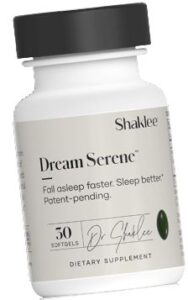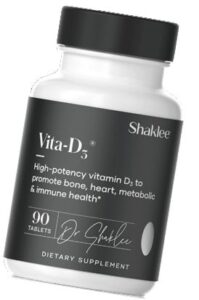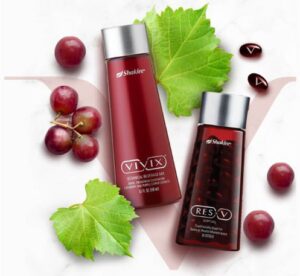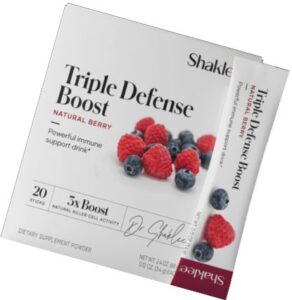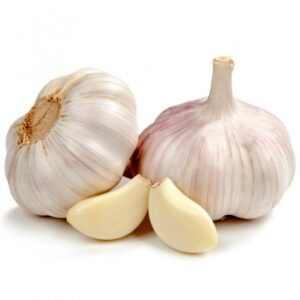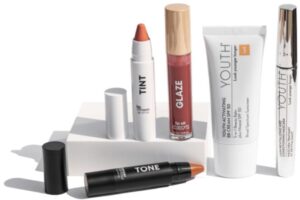This issue of Making a Difference! is brought to you by…
 Betty Griffin
Betty Griffin
(352) 286-6534
[email protected]
Go Shopping
In this issue…
♦ Another headache? ♦ When to seek professional help for a headache
♦ All about headaches…
♦ The best nutrients and Shaklee supplements for headache prevention and treatment…
♦ 7 nutrition tips to feed your brain ♦ Shaklee supplements for tip-top brain power!
♦ Sun protection… from the inside out! ♦ For even better internal sun protection…
 “Contrary to the belief of some people, brain work DOES require a great deal of energy. Brain cells… must be supplied with protein, vitamins, and minerals, [plus lecithin, whole protein and phosphorus].
“Contrary to the belief of some people, brain work DOES require a great deal of energy. Brain cells… must be supplied with protein, vitamins, and minerals, [plus lecithin, whole protein and phosphorus].
Being a physical organ, it must be nourished in the same manner as all other organs, so make sure you supply the necessary nutrition. Weakened, starving brain cells will give trouble to your mental processes, just as weakened, starving cells in your legs will give you trouble in walking.“
~ A Study Course in Nutrition by Forrest Shaklee Sr., DC, DD
Another headache?
If you’re like most people, you’ve experienced a headache or two… or more… at some point in time. If you suffer from them frequently, you’re acutely aware of just how much they affect your quality of life. Headaches can start anywhere, at any time, and they can affect just one part of your head or involve all of it. Paying close attention to specific details when you’re suffering from a headache can help pinpoint the proper treatment.
You may be prone to headaches because of stress, depression, or anxiety. There are also medical reasons such as an infection or high blood pressure that cause headaches. Even the weather can give you a headache!
The severity of the pain you experience can also help your healthcare professional diagnose the cause of your headaches and work with you to find a solution.
When to seek professional help for a headache
It’s important to get the advice of your healthcare practitioner about your headache if:
♦♦ It is persistent
♦♦ It is severe
♦♦ It occurs frequently
♦♦ It doesn’t go away after taking medication
♦♦ It is accompanied by confusion, fever, stiffness in the neck, or sensory changes.
All about headaches…
 According to the World Health Organization, headaches are extremely common. While nearly everyone has a headache occasionally, up to 1 adult in 20 has a headache every… or nearly every… day. The more serious migraine headache is also very common affecting at least 1 adult in every 7 in the world.
According to the World Health Organization, headaches are extremely common. While nearly everyone has a headache occasionally, up to 1 adult in 20 has a headache every… or nearly every… day. The more serious migraine headache is also very common affecting at least 1 adult in every 7 in the world.
Headaches fall into two categories: primary and secondary.
Primary headaches are usually caused by problems in the structure of the head and the neck, and are not related to other processes elsewhere in the body. Overactivity of specific muscles, nerves, blood vessels, or certain brain chemicals can also trigger this type of headache. Cluster and tension headaches are good examples of primary headaches.
Secondary headaches are caused by other processes in the body outside the head, often a result of underlying medical conditions. Pregnancy, infection, stroke, hypothyroidism, and brain tumors are only some of the conditions that can cause secondary headaches.
Types of headaches
Tension-type headaches. This is a primary headache that usually starts in the middle of the day. You can recognize them by:
____ A feeling of a tight band around your head.
____ A dull, yet constant ache on both sides of your head.
____ Pain radiating up from your neck.
Tension-type headaches are further divided into episodic attacks that last for short periods, and chronic tension headaches, which happen 15 or more days a month and can last from 30 minutes to as long as a week.
Migraines. This more severe type of headache often occurs as a pulsating, throbbing pain, usually on one side of the head.
Other symptoms that accompany a migraine episode include:
____ Sensory disturbance
____ Sensitivity to sound and light
____ Light-headedness
____ Nausea
____ Vomiting
Migraines are very common. While an episode can last for days, sometimes the symptoms only continue for a few hours. Some people have migraines once a year, while others experience them weekly.
 Medication-overuse headache. Also known as a rebound headache, these occur when a person takes pain medication… often opiates… too often. People who suffer from migraines frequently are at risk of developing medication-overuse headaches.
Medication-overuse headache. Also known as a rebound headache, these occur when a person takes pain medication… often opiates… too often. People who suffer from migraines frequently are at risk of developing medication-overuse headaches.
Cluster Headache. These headaches can affect a person one to eight times per day. One attack may last 15 minutes or even as many as three hours or more. People who have cluster headaches experience them frequently over periods from four to twelve months. They can subsequently have long periods with no headaches at all.
The symptoms often include:
____ Severe pain
____ Pain around one eye only
____ Drooping eyelid
____ Runny nose
____ Tearing in the eyes
____ Sweating
____ Reduced pupil size in one eye
 Thunderclap headache. Sudden and severe, these headaches are often described as “the worst headache I have ever had.” Thunderclap headaches reach maximum intensity in under a minute, but residual pain will continue for much longer.
Thunderclap headache. Sudden and severe, these headaches are often described as “the worst headache I have ever had.” Thunderclap headaches reach maximum intensity in under a minute, but residual pain will continue for much longer.
Thunderclap headaches should not be ignored as they can indicate a life-threatening process, including:
____ Aneurysm
____ Meningitis
____ Pituitary apoplexy
____ Blood clot in the brain
____ Bleeding in the brain
The best nutrients and Shaklee supplements for headache prevention and treatment…
The best nutrients and Shaklee supplements for headache prevention and treatment…
Magnesium (Sustained Release VitalMag)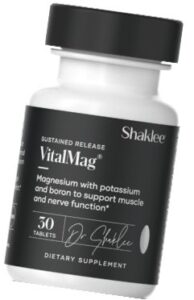
It seems that people with migraines have lower levels of magnesium than the rest of us. Studies suggest that 400 milligrams of magnesium daily for at least 3 months may help alleviate migraines.
Riboflavin/vitamin B2 (B-Complex)
Research has shown that people with migraines may have a malfunction in the metabolic process which could be responsible.
Coenzyme Q10 (CoQHeart)
In one small study, people with migraines were given coenzyme Q10 each day. More than 60% of them had a 50% drop in the number of days they had a migraine.
Melatonin, a natural hormone, is similar to indomethacin, an anti-inflammatory drug used to treat aches, pains, and migraines. Research shows that those with chronic migraines have very low levels of melatonin and might benefit from supplementation.
An analysis of five premier studies found that taking vitamin D supplements significantly decreased the duration, frequency, and severity of migraine headaches, compared with taking a placebo, and another concluded that taking 1,000 – 4,000 IU per day of vitamin D might help reduce the frequency of migraine episodes.
Dream Serene™ | All-Night Zzz’s
7 nutrition tips to feed your brain
For most people as they age, there are few things more frightening than the prospect of suffering from dementia or Alzheimer’s. That’s one very good reason to take care of your brain!
Believe it or not, brain health is easier to manage than you realize. There are plenty of nutritional ways to feed your mind to maintain cognitive function and even improve your mental health as you age.
Here are seven nutritional tips for brain health:
 1) Get your fatty acids. Omega-3 fatty acids are crucial for brain health. Eating fatty fish such as sardines, salmon, or mackerel, improve cognitive function, increase brain blood flow, and improve memory retention. If you don’t like fish, eat walnuts, chia seeds, flaxseeds… or take Shaklee OmegaGuard.
1) Get your fatty acids. Omega-3 fatty acids are crucial for brain health. Eating fatty fish such as sardines, salmon, or mackerel, improve cognitive function, increase brain blood flow, and improve memory retention. If you don’t like fish, eat walnuts, chia seeds, flaxseeds… or take Shaklee OmegaGuard.
2) Eat healthy fats. The healthy fats found in nuts, seeds, olive oil, and avocados support brain health by maintaining cell membrane integrity, a key for new brain cell growth. Healthy fats protect against cognitive decline and support brain function.
3) Consume plenty of antioxidant-rich foods. They play a major role in maintaining brain health and fighting oxidative stress that kills neurons. 
4) Make whole grains a part of your diet. Whole grains are an excellent source of vitamins and minerals and fiber. All of these support brain health, regulating blood sugar levels which plays an important role in maintaining cognitive function. Whole grains, such as whole wheat, oats, brown rice, and quinoa provide you with a steady supply of energy and plenty of nutrients.
5) Stay hydrated. Dehydration is deleterious for mood and cognitive function, particularly for those with dementia. And one study proved that even dehydrated college students struggled with memory, self-esteem, attention, and energy.
6) Reduce saturated fat. Saturated and trans fats are typically found in fried foods, baked goods, and other processed foods. These can increase inflammation, which can contribute to cognitive decline.
7) Limit alcohol. Alcohol consumption has an immediate impact on the brain and body. While there may be some health benefits from a glass of red wine, excessive consumption can destroy your brain health. Too much alcohol contributes to cognitive decline, leads to impaired judgment, and can lead to neuron death. If you want the antioxidant protection of the polyphenols found in red wine, try supplementing with Vivix instead.
While nutrition is key to overall health, it’s particularly beneficial for your brain. Follow these tips and feed your brain the nutrients it needs to support cognitive function and stave off neurodegenerative diseases.
The Story of Vivix
Shaklee supplements for tip-top brain power!
Just like every other organ in your body, your brain will perform its best and remain healthy with the right nutrients. Here are some supplements that will help:
____ A Shaklee exclusive: MindWorks. This proprietary formula has been shown in multiple clinical and laboratory studies to significantly enhance short-term memory, sharpen focus, improve reaction time, protect against age-related cognitive decline, and support healthy circulation.
____ OmegaGuard. Omega-3 polyunsaturated fatty acids are fundamental building blocks for your brain cells. Omega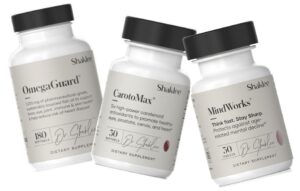 Guard provides a full spectrum of seven ultra-pure, pharmaceutical-grade omega-3 fatty acids for superior health.
Guard provides a full spectrum of seven ultra-pure, pharmaceutical-grade omega-3 fatty acids for superior health.
____ CarotoMax. Although some powerful members of this carotenoid family… lutein and zeaxanthin… are more known for supporting eye health, research has shown ties between these carotenoids and maintaining normal, healthy cognitive function.
CarotoMax provides over 13 mg of the carotenoids lutein, lycopene, beta-carotene, alpha-carotene, and astaxanthin per serving…. more than 1.5 times the average daily intake.
Other Shaklee supplements for brain health are:
____ Lecithin
____ B-Complex
____ Vita-E Complex
____ OsteoMatrix
____ Sustained Release VitalMag
____ Zinc Complex
____ Turmeric Boost
MindWorks, from Shaklee
Sun protection… from the inside out!
While most of us (especially those living in northern climates) love spending as much time as possible outside, the source of all that warmth and light… the sun… has almost become… the enemy!
All we seem to hear on the news anymore is statistics about UV rays and wrinkles, damaged eyesight, and skin tumors. While it’s estimated that over 100,000 people will develop melanoma this year… and 8,000 will die from it… you can largely protect yourself with a few common sense measures:
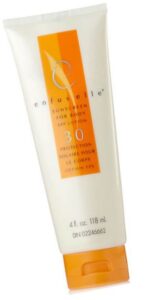 ⇒⇒ Apply SPF 30 for Body when you are outdoors.
⇒⇒ Apply SPF 30 for Body when you are outdoors.
⇒⇒ If you are in and out of the water or are sweating profusely, reapply SPF 30 for Body every hour.
⇒⇒ Wear protective clothing such as a big floppy hat in the sun and long sleeves and pants if you burn easily.
⇒⇒ Protect your eyes with UV blocking sunglasses.
What most people don’t realize is that SPF products and protective clothing cannot keep all UVA and UVB rays from entering your cells. But… the nutrients lutein and zeaxanthin (two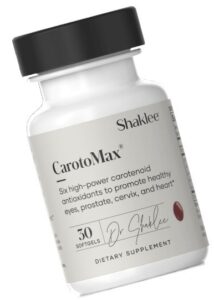 carotenoids always found together in nature that protect the cells from UV damage) are present not only in the skin, but are also concentrated in the macula, the part of the retina responsible for clear central vision.
carotenoids always found together in nature that protect the cells from UV damage) are present not only in the skin, but are also concentrated in the macula, the part of the retina responsible for clear central vision.
You’ll find both lutein and zeaxanthin in CarotoMax… “internal shade” from the sun that will let you play a little longer outdoors!
For even better internal sun protection…
Shaklee scientists talk a lot about synergy. Cellular synergy is defined as the interaction of two or more nutrients working together to produce a combined effect greater than the sum of their separate 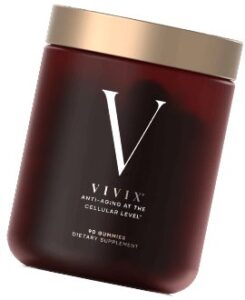 benefits.
benefits.
When it comes to antioxidant supplements that work together to shield you internally from UVA and UVB sun damage, adding Vivix… a potent source of polyphenols… to CarotoMax provides powerful protective synergy your cells will love!


